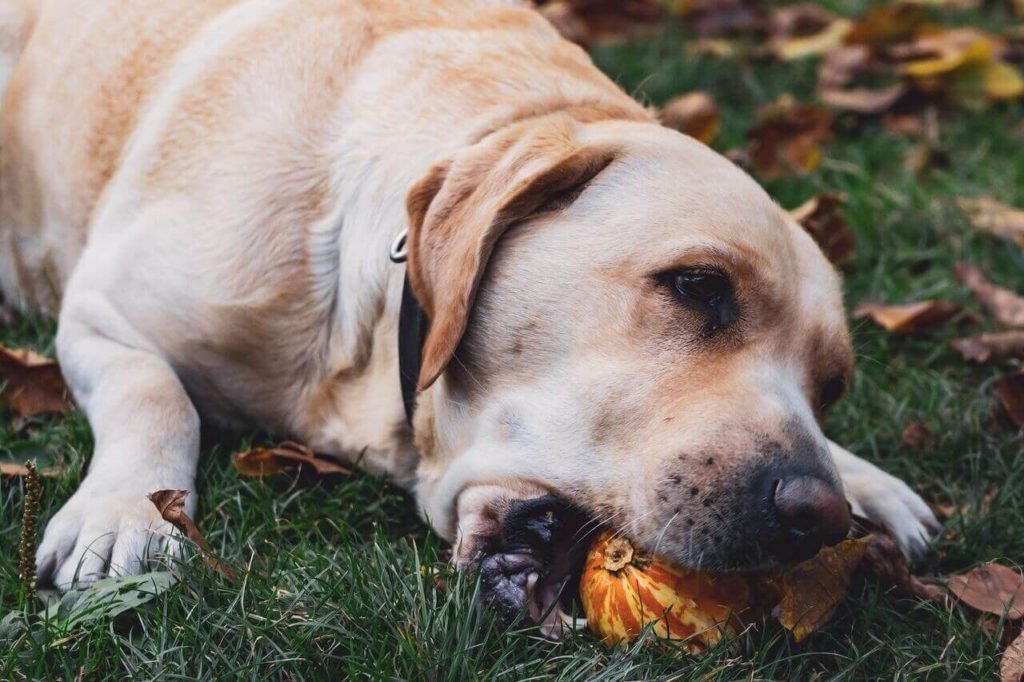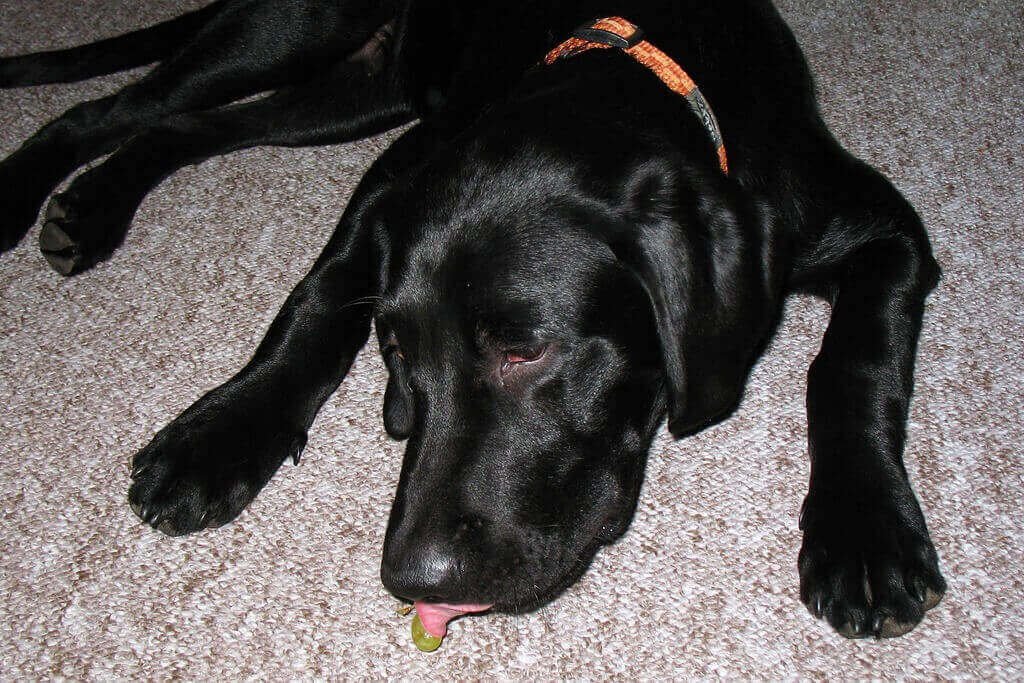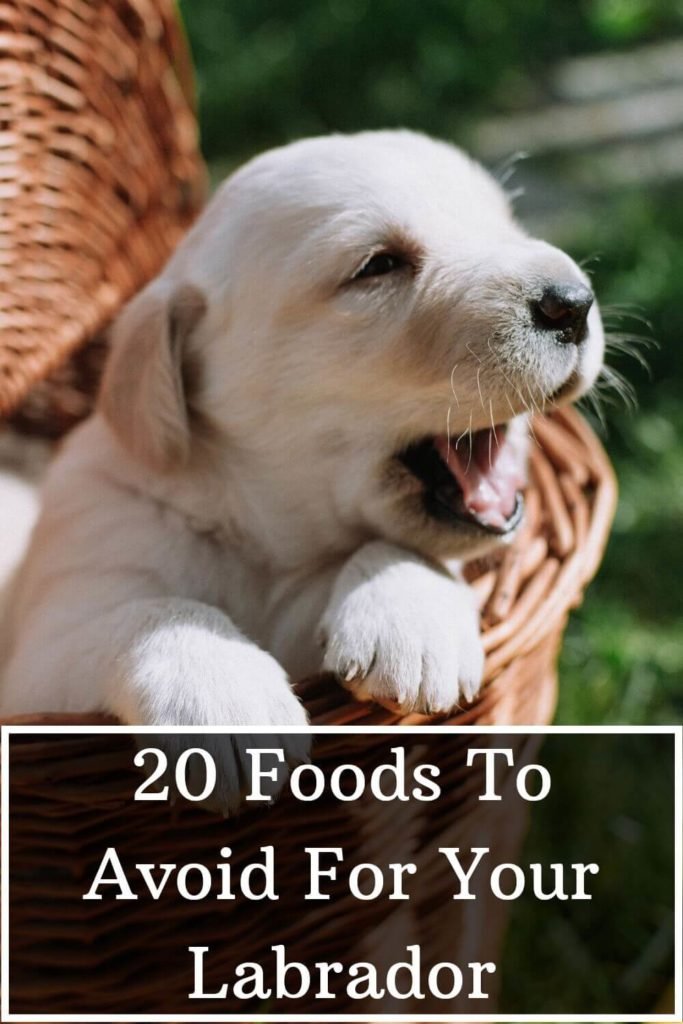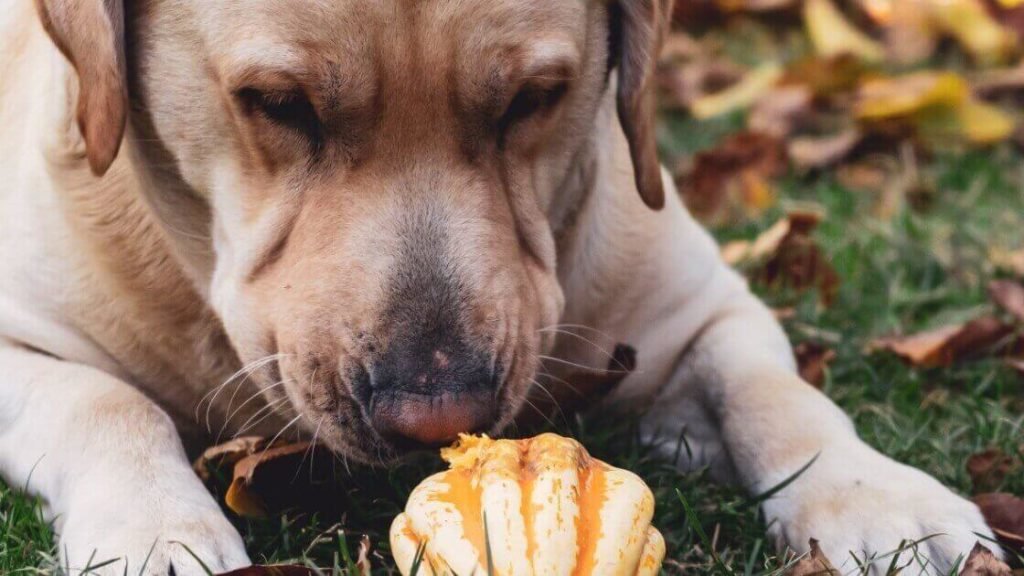Labradors love eating, They prefer to eat, eat and eat a lot when they get something. You might have noticed this too if you have a Labrador. As a Labrador owner, it is difficult to resist sharing food with your Lab, when it looks at you with those cute hungry eyes pleading for food.
Whatever you eat, it can be chocolates or pizzas or cakes. Your Lab always looks at you, for his little piece of share. In such cases, a lot of food goes into your Lab’s mouth.
But how far is it safe to feed your dog with human food? Some human foods may be fine for your dog. But not every food.
Is it okay to feed him a piece of cake or a piece of bread? Maybe. But there are certain foods that you should never give to your dog.
Some human foods are not only unsafe for your dog but can also be potentially toxic for him. Out of the various human foods, there are some foods that you should never feed your Lab, and some human foods can be given with some precautions.
Have a look at the list of foods to avoid for a Labrador.
Foods to avoid for Labrador
Before going through the list of bad foods for your Labrador, it is important to have a little understanding of your dog’s digestive system.
Dogs have become a part of our human lives and a part of our family. Because of this we even treat dogs like the way we treat humans.
In spite of being a part of our family, you have to remember the fact they are a different species of life.
Do you know that your digestive system and your dog’s digestive system are completely different? Your dog’s digestive tract is shorter when compared with yours. Your dog’s stomach acids are also much stronger than the acid in your stomach. Hence your dog metabolizes the food differently when compared with you.
Is it easy for you to digest a large chunk of raw meat easily? No. But your dog can do it easily.
All these points clearly differentiate your dog’s digestive system from your’s and hence the food that gets into your dog’s stomach should also be different.
I will give you the list of human foods that are not suitable for your Lab’s digestive system and the list of foods that can turn toxic for your Lab.
Why Labradors?

Foods that are harmful or not suitable for your Labrador are obviously not suited for every other dog breed too. But why special care is required with respect to Labradors?
The reason for special care in feeding Labradors is due to their voracious eating habit.
I have heard of Labradors that have eaten the most unsuitable things for them. I have heard of Labs that have eaten chocolates, sweets, leftover cooked bones and many kinds of human junk food too.
As Labradors have an unending appetite, there is a greater chance that your dog might eat some wrong and unnecessary foods which can be harmful to its health.
What Labradors should not eat?
I will divide the list of foods that you should not feed your Labrador, for that matter any dog, into two categories.
The first category includes foods that should not be fed at all in any case, as they could be potentially toxic to your dog.
The second category includes foods that your Labrador should not eat, but if eaten in small amounts may not cause immediate health concerns. ( But this does not mean you can feed them. Your dog should not eat them too).
What can labradors not eat? Have a look at the list below…
1. Alcohol
Why should a dog be given something that is not made for its consumption? Humans consume alcohol for various reasons. But why should a dog drink alcohol?
I have heard about some people who fed their dog with some amount of beer, which could be out of fun or due to ignorance.
But it is important to remember that, it is not funny to feed your dog with alcohol, and dogs should never consume alcohol. Alcohol in any form which may be beer, wine, vodka or even hops, even ingested in small amount may cause ethanol poisoning in your dog.
You may not feed alcohol directly to your dog, but in some cases, wine spills and alcohol within the reach of your dog can be the cause of alcohol toxicity in your dog.
In such cases, you notice symptoms such as vomiting, diarrhea, lack of coordination and tiredness in your dog. If your dog consumes alcohol in excess amounts, it can eventually lead to heart attack, lung failure, seizures and sometimes even death.
Hence keep all forms of substances that contain alcohol away from the reach of your dog. This includes alcohol-based perfumes and cleaning products too.
2. Caffeine
You may need some caffeine for a little boost in your daily routine, but your dog doesn’t need it at all. Your dog doesn’t require it and can be harmful if taken.
Your dog is too sensitive to the effects of caffeine when compared with humans. When i talk about caffeine, coffee and tea usually come to your mind. But caffeine is not only present in tea and coffee but also present in many drinks and other items your house.
Hence any item that contains caffeine should be avoided for your dog.
Caffeine stimulates your dog’s nervous system, which leads to hyperactivity, raised blood pressure, and irregularity in the heartbeat. It can cause vomiting and diarrhea too.
So, No caffeine for your dog.
3. Chewing gum with Xylitol
If your dog eats a small amount of sugared gum, it might cause a little digestive distress for him. But what if it consumes a chewing gum with xylitol?
Xylitol is an artificial sweetener which is used in many sugar-free chewing gums.
In case, your dog eats that gum, it can be very harmful to him. Yes, xylitol is very toxic for dogs. It can lead to a rapid lowering of blood sugar levels in your dog within 30 minutes of consuming it.
Xylitol may be present in chewing gums, toothpaste, sugar-free foods, some baked goods and even some brands of peanut butter. Keep all such products away from your dog. Take more care regarding foods like peanut butter which your dog might eat usually.
In severe cases, consuming xylitol can cause seizures and even liver failure in your dog. So be careful with xylitol.
4. Grapes and Raisins
This is another poisonous food for your dog, even in small amounts. Not even a few grapes or few raisins should be fed to your Labrador.

Grapes and raisins contain an unknown toxin that directly affects your dog’s kidneys. Grapes can cause rapid kidney failure in your dog. If a dog is already dealing with kidney issues, feeding him grapes or raisins could be the worst thing that could ever happen to him.
Always keep grapes and raisins away from your dog. Tell people around you to not feed them to dogs. As grapes being a healthy fruit, people usually might feed them unknowingly to their dogs, without knowing their toxic effects.
5. Chocolate
Your Labrador usually has some natural resistance towards eating some foods. For example, when my Lab smells a cup of tea and backs off, it doesn’t even taste it. Dogs have the natural capability of choosing foods to eat and foods to avoid.
But what about chocolates?
When you place some chocolates before your dog, there is a greater chance for your dog to consume them.
Because your dog has taste buds and it can identify the taste of sweet. Your dog likes the taste of sweet just like us.
But the chocolates we consume usually has the compound theobromine which is not suitable for your dog. It can be toxic and very dangerous for your dog in certain cases. The level of danger depends upon the type of chocolate your dog consumes. Whether it is dark chocolate or milk chocolate? Whether is taken on an empty stomach or taken along with food? The seriousness of the condition depends upon such factors.
Whatever the factors may be, chocolates should not be fed to your dog. Eating chocolates can cause vomiting, diarrhea, severe digestive distress and sometimes even seizures too.
Feeding chocolate to your dogs usually happens during birthdays, party’s, Haloween, Christmas and during such similar occasions.
I have heard people without proper knowledge who say that dogs can eat chocolates. If you come across such a person, tell him clearly that chocolates are not for dogs.
6. Macadamia nuts
Macadamia nuts are one of the tops human foods that should not be given to your dog at all.
What about smaller quantities?
Every dog is different with respect to the toxic effect of these nuts. The toxicity range is anywhere between 2 grams to 64 grams of the toxin per kg body weight of the dog. As the range is very large, it is difficult to access the toxicity effect of eating macadamia nuts in your dog.
Hence it is better to never feed these nuts to your dog.
These nuts are usually found in the houses, either separately or present in some foods like cookies.
Some unidentified toxin present in these nuts is potentially toxic to your dog. Ingestion of these nuts by your dog could lead to vomiting, ataxia, elevated body temperature, and weakness along with depression.
So keep this dangerous food away from your Labrador.
7. Raw Yeast Dough
This is another human food that can be extremely dangerous for your dog. Feeding your dog with unbaked dough can cause two major health concerns in your dog.
Firstly, an unbaked dough after ingestion expands inside your dog’s warm stomach. The yeast which is already present in the dough activates and the dough expands in size. This can cause your dog’s stomach to bloat. It can lead to a condition called GDV. This is a dangerous condition which is fatal for any dog.
Secondly, raw yeast dough can cause alcohol poisoning in your dog. The yeast present in the food gets fermented and produces alcohol in this process. This alcohol produced is easily absorbed into the bloodstream which can be dangerous for your dog.
This finishes the first category list of foods that are extremely toxic to your Labrador. Now have a look at the remaining list of foods that are although not extremely toxic but you should not feed them.

8. Avocado
The avocado fruit, the pits, its leaves and the plant are all toxic to dogs. Avocados contain a toxin called persin which is very poisonous to dogs. Consumption of this toxin can lead to accumulation of fluid in the dog’s lungs and causes breathing difficulty, and sometimes even death.
The toxin which is harmful to dogs is present in higher concentrations in the leaves, skin and pits of the avocado plant.
But what about the flesh?
The flesh contains the toxin in very low concentrations. Because of this reason some dog owners prefer feeding the flesh of avocado to their dogs.
But the amount of persin that causes harm to your dog is actually not known exactly. Hence there is no necessity of feeding foods that include risk in eating them. Hence it is better to avoid avocados for your dog.
9. Onions and Garlic
Foods that belong to the allium family are considered to be unsuitable for dogs. Onions contain a compound called N-propyl disulfide, and this can be toxic to your dog. Even garlic contains thiosulphate which is toxic to your dog.
But let me tell you my personal experience regarding feeding garlic and onions to dogs.
My dog at my grandmother’s house which is crossbreed has been fed with a diet of rice and curry since it was a puppy. The curries usually included onions and garlic too. But it did not affect the dog and the dog lived a healthy long life. Without any major health problems, he had lived for 16 years.
But this cannot be the case with every dog, and i don’t feed onions to my Labrador.
But what about garlic? Is it so unsafe?
Although garlic is usually unsafe for dogs, some pet owners and some studies suggest the usage of garlic to dogs which provide a list of wonderful benefits for your dog.
Some studies even suggest using garlic as a supplement. It all depends upon the dosage of garlic and the duration of feeding garlic to the dog. I fed my Labrador with garlic to deal with the flea nuisance and it helped him a lot.
In spite of the claimed benefits, a large quantity of garlic can be poisonous to your dog. Hence discuss with your vet if you want to administer garlic to your dog as a medicine for any specific reason.
10. Milk
Feeding milk to dogs is a controversial topic. I have seen dogs drinking milk without any side effects. But my dog gets diarrhea soon after drinking milk.
Even some experts suggest feeding milk to dogs where are some are completely against feeding milk to dogs.
But what is the truth? Is milk harmful to dogs? Then what about puppies, won’t they drink milk in their initial stages of life?
Yes, puppies do drink milk from their mothers before weaning. Before weaning, the puppies have the required amount of enzyme to break down the mother’s milk. But after they get weaned, they stop producing lactase.
And every dog is different in this case, because of this every dog reacts in a different manner after drinking milk and consuming other dairy products. The side effects of drinking milk are different in every dog. Some dogs might not show any digestive issues whereas some dogs might exhibit severe digestive problems.
Actually there is no special reason for feeding milk to your dog. You can provide all the nutrients which milk offers from various other sources. Hence it is not necessary to feed milk to your dog.
11. Cooked Bones
There exists a lot of contradictory information regarding feeding bones to dogs. Feeding bones to your dog includes both health benefits and health risks too. All the risk depends upon the type of bone and size of bone that you feed your dog.
Raw bones of the right type and right size are a good choice for giving it to your dog.
But what about cooked bones? You should never feed cooked bones to your dog. The cooked chicken bones which are usually the table scraps break easily. They splinter and cause gum and digestive injuries which can be severe in some cases.
I remember an instance when my friend’s Labrador had a gum injury after chewing a cooked bone. So never give cooked bones to your dog.
12. Cinnamon
Cinnamon is found in some cookies and some cakes too. This food even though is not toxic for your dog, you should not feed it.
If you add large quantities of cinnamon in your dog’s diet, it irritates your dog’s mouth and digestive system.
Keep cinnamon in powdered form away from your dog. In case your dog inhales it, it might cause respiratory difficulty for him. Even though not toxic, cinnamon is not suitable for your dog. So it is good to avoid it.
13. Nutmeg
Nutmeg is a spice used in some cookies and cakes. It enhances the flavour of many foods but not suitable for your dog.
Nutmeg has a compound called Myristicin that is toxic to your dog. If you have a large dog and if grabs a cookie with nutmeg in it, there might not be any severe consequences. But if your dog is a small one and if it steals 3 to 4 cookies, then it would surely be a problem for him.
As nutmeg is toxic to your dog, possibly avoid all forms of food that contain this spice.
14. Tomatoes
Tomatoes are both okay in limit and toxic to your dog. Once my Labrador stole a big tomato from the vegetable basket and ate it before i could remove it. I was a little worried and it was then when i had studied about dogs eating tomatoes.
Not all tomatoes are okay for your dog. Feeding a red ripe tomato is usually safe for your dog. It is a problem only when it is unripe and green in color. A green-colored tomato, usually which is unripe contains compounds like tomatine and solanine which are toxic to your dog.
These toxins are usually present in green parts of the plant such as its leaves, stem and the unripe green tomatoes.
Are ripe tomatoes okay to feed? Even excess feeding of ripe tomatoes can cause digestive distress for your dog.
Hence you can feed the red ripe tomato only as an occasional treat and completely avoid the unripe green ones that are toxic for your furry friend.
15. Almonds
Some nuts are not suitable for your dog, whereas some nuts can be given in smaller quantities. Almonds are not usually toxic for your dog, but they cause extreme stress on your dog’s digestive system.
If your dog eats one or two nuts that fell on the ground, it might not be an issue for concern. But if your dog eats almonds in more number, it can definitely cause an issue for your dog.
Almonds could cause digestive strain and could induce vomiting, diarrhea, loss of appetite and severe indigestion in your dog.
The high-fat content in almonds could also cause issues like pancreatitis in your dog. Pancreatitis is a serious condition that needs immediate care.
Your dog doesn’t chew the almonds given to it, it simply swallows them. This way of eating could lead to obstruction in your dog’s esophagus, intestines and even windpipe.
Hence it is better to avoid almonds to prevent these risky conditions.
16. Lemons and Limes
Dogs usually do not prefer eating lemons or limes on their own because of the fruit’s strong acidic taste. My Lab hates lemons, it does not prefer to eat them even if i force him to eat. So dogs usually have resistance to eating lemons.
But this is not the case with every dog. I have seen dogs happily munching on lemons.
But actually lemons or limes are toxic to your pet. The peels of lemon contain a substance called psoralen which is harmful to your dog. The peel when ingested can also cause digestive upset. Sometimes the effects may be more serious too.

Then what about the juice of the fruit?
Even though licking a few drops of juice may not harm your dog. But taking them in a little more quantity can be disturbing to your dog’s stomach. This is because of the acidic nature of the citrus fruit. It can cause both vomiting and diarrhea in your dog.
As this fruit even does not provide any immense nutritional benefit for your dog, it is better to skip feeding lemon and lime to your dog.
17. Corn on the cob
Some dogs are allergic to corn, but some dogs happily eat corn. Feeding your dog with a few tablespoons of corn is okay. Your dog gets all the vitamins, minerals and antioxidants present in the corn.
Corn in moderation sometimes is not an issue for your dog. But what about corn along with the cob?
I say, always No. Do you think your dog has the capacity to digest the cob as well? Not at all.
Your dog cannot digest the cob and there is a chance of intestinal blockage if he swallows the chunks of cob. Many such cases require veterinary assistance along with a surgery to be performed to remove those indigestible chunks.
Remember, never give the cob to your dog.
18. Ice cream and sugars
Dogs have taste buds and they are attracted to sugars and foods like ice creams just like us. But firstly, your dog does not need sugar for its body. Secondly, ice cream contains milk and your dog cannot digest it properly. Hence feeding ice cream may cause stomach upset in your dog. It may also lead to diarrhea, vomiting and gas formation.
The sugar present in the ice cream or other added sugar is not good for your dog’s health. Feeding your dog with sugar which is not required for its body creates a gut imbalance in your dog’s digestive system which can pave the way to a number of health problems.
Various health issues such as lowered immunity, digestive issues, weight gain, gum problems and various other health problems may arise. A little bit of sugar or ice cream may not harm your dog excessively. But anything greater than the smaller amounts can be detrimental to your dog’s health.
19. Salt
Your dog needs sodium for proper cellular function. But you do not have to add salt in its diet to supply the essential sodium for him. Foods that your dog usually eats such as meat, poultry, fish, and eggs are good sources of sodium.
Even the commercially prepared foods have the required amounts of sodium for your dog.
Hence there is no necessity to feed additional salt to your dog. This additional or excessive salt can be harmful to your dog. It can lead to salt poisoning in your dog.
Excessive salt consumption can make your dog extremely thirsty. It may lead to vomiting and diarrhea. Too much salt can finally lead to severe dehydration which can even be fatal to your dog.
Hence stop giving chips and other salty foods to your dog.
20. Human junk food
This is something that goes into your dog’s mouth very often. As a loving dog owner, it is difficult to resist giving food to your dog, after looking at its hungry eyes. I have seen people feeding pizzas, sandwiches and even cakes to their dogs while eating them.
But junk food which is made for humans to eat is not suitable for your dog. If the junk food that you eat is causing health damage to you, imagine what effects it could have if you feed it to your dog?
Unnecessary treats and human junk food can cause serious health complications for your dog such as weight gain, obesity, heart disease and even cancer.
Some ingredients such as onions present in the human food could also pose a potential risk to your dog if eaten. Avoid the habit of human junk food as treats for your dog.
“We would Love to hear from You. Ask your Questions and Share your views in comments”
References:
Sanjay K Banerjee, Subir K Maulik, “Effect of garlic on cardiovascular disorders”, ncbi, 2002.
Doreen M. Houston, Laurie L. Head, “Acute alcohol intoxication in a dog”, ncbi.


I do not feed my Labrador sweet biscuits, but would like to know how dangerous is it for labs to consume these ie- Digestive and Rich Tea biscuits.
Hello friend. One or two biscuits may not harm your dog, but why do you want to feed your dog something which is not made for him. Although the biscuits seem healthy, they contain some amounts of sugar and wheat which are not suitable for your dog. Although not dangerous, it would be a better option to choose some healthy snacks instead of those biscuits.
Lots of love to your dog.